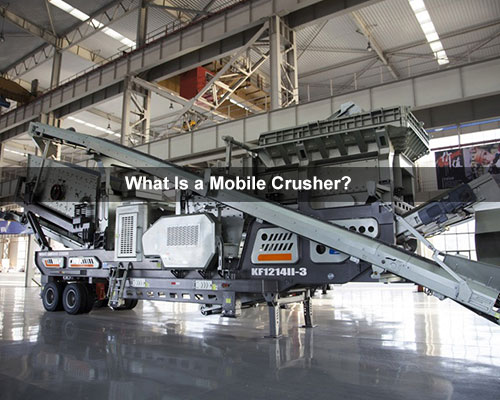What Is a Mobile Crusher?
Posted: 2025-06-27 Source: Liming Heavy Industry Views: 263
Introduction
A mobile crusher is a modern rock-crushing machine designed for on-site material processing in mining, construction, and recycling projects. Unlike traditional stationary crushers, mobile crushers can be easily moved between job sites, offering unmatched flexibility and efficiency.
This guide explains how mobile crushers work, their key benefits, different types, and popular applications.

How Does a Mobile Crusher Work?
A mobile crusher operates by:
Feeding raw material (rocks, concrete, or ore) into the machine.
Crushing and screening the material into smaller sizes.
Delivering the final product (gravel, sand, or recycled aggregate) via an integrated conveyor system.
These machines are mounted on tracks (crawlers) or wheels for easy transportation between sites.
Key Components of a Mobile Crusher
- Crusher Unit
- Jaw Crusher (for primary crushing)
- Cone/Impact Crusher (for secondary/tertiary crushing)
- Feeder System
- Regulates material input into the crusher
- Vibrating Screen
- Separates different aggregate sizes (e.g., 0-5mm, 5-20mm)
- Conveyor Belts
- Transports crushed material to stockpiles or trucks
- Mobility System
- Tracked (Crawler): For rough terrain
- Wheeled: For faster road travel
Types of Mobile Crushers
| Type | Best For | Input Size | Output Size |
|---|---|---|---|
| Jaw Crusher | Hard rocks (granite, basalt) | Up to 1,000mm | 100-300mm |
| Cone Crusher | Medium-hard stones (limestone, iron ore) | 150-250mm | 20-50mm |
| Impact Crusher | Soft materials (concrete, asphalt) | <500mm | 0-40mm |
| VSI Crusher | Sand production (manufactured sand) | <50mm | 0-5mm |
Top 6 Benefits of Using a Mobile Crusher
- Portability – Move between sites quickly, reducing transport costs.
- On-Site Processing – Crush directly at the source (quarry, demolition site).
- Versatility – Handle rock, concrete, slag, and recycled materials.
- Lower Labor Costs – Automated crushing reduces manpower needs.
- Quick Setup – Ready to operate in less than 30 minutes.
- Eco-Friendly – Reduces trucking emissions by processing materials locally.
Common Applications of Mobile Crushers
- Mining & Quarrying (crushing gold, iron ore, limestone)
- Construction & Demolition (recycling concrete, bricks, asphalt)
- Road & Infrastructure Projects (producing gravel and base materials)
- Recycling Plants (crushing glass, rubble, and industrial waste)
Mobile vs. Stationary Crushers: Which Is Better?
| Factor | Mobile Crusher | Stationary Crusher |
|---|---|---|
| Mobility | ✅ Highly portable | ❌ Fixed location |
| Setup Time | ⏳ <1 hour | ⏳ Weeks for installation |
| Flexibility | Ideal for short-term projects | Best for long-term production |
| Cost | 💲 Higher initial cost | 💲 Lower upfront, but requires infrastructure |
Best Choice:
If you move between job sites → Mobile Crusher
If you have a permanent processing site → Stationary Crusher
FAQs About Mobile Crushers
❓ What is the smallest mobile crusher available?
→ Some compact models process 50 TPH (ideal for small projects).
❓ Can mobile crushers recycle concrete?
→ Yes! Impact crushers are best for crushing and reusing concrete.
❓ How much does a mobile crusher cost?
→ $200,000 – $800,000+ (depends on size, brand, and features).
❓ Do mobile crushers require permits?
→ Local regulations vary—check with authorities before deployment.
Conclusion
A mobile crusher is a flexible, high-efficiency machine for on-site material processing, reducing the need for transporting raw materials. Whether for mining, construction, or recycling, mobile crushers provide cost-effective, eco-friendly crushing solutions.